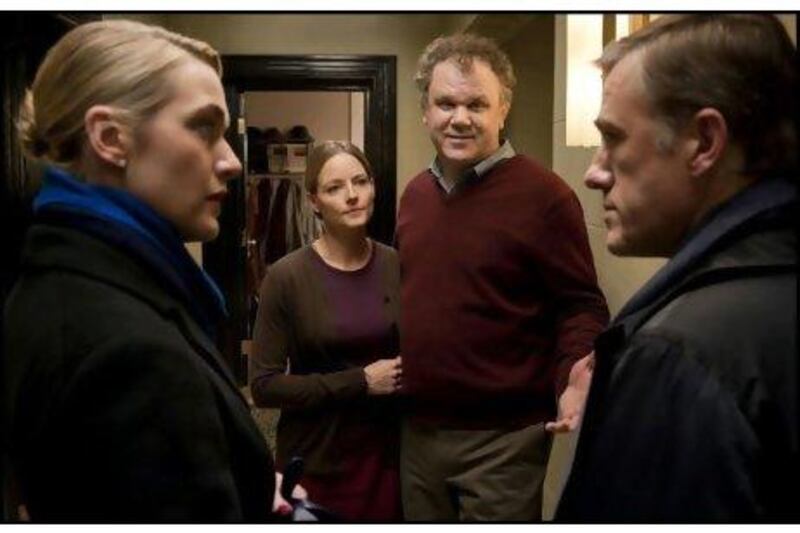Director: Roman Polanski
Starring: Jodie Foster, Kate Winslet, John C Reilly, Christoph Waltz
****
Adapting a stage play for the big screen is one of the great challenges for any movie director. It is even more difficult when the action takes place predominantly in one location. Theatre is by its nature more dialogue-led than cinema. Locations also take on far more significance in films where the scenes are liberated from the confines of a stage. The result of these traditional disparities is that even the best play can seem slow and over-talky on screen. A director has to be at the top of his game if proceedings are not to feel staid.
Anyone familiar with the oeuvre of Roman Polanski, especially Repulsion (1965) or The Tenant (1976), will not be surprised that the Polish film director makes an accomplished stab at adapting Yasmin Reza's stage play God of Carnage.
Set in a plush Brooklyn apartment, the story centres on a meeting between two sets of parents to discuss a fight that has broken out between their children. The condo belongs to Penelope and Michael Longstreet (Jodie Foster and John C Reilly), whose son has been struck by the child of Alan and Nancy Cowan (Christoph Waltz and Kate Winslet).
At first, everything is cordial. Penelope has baked for her guests, who have sent flowers in advance. There is a boys-will-be-boys tone to the conversation and everyone seems ensconced in a need to appear civil. However, it doesn’t take long for the façade to break. Left-leaning liberal Penelope and conservative lawyer Alan are particularly at odds with each other.
The performances are impressive. Foster says one thing, but her posture says another. Reilly, by contrast, hulks his body around like a weapon. Waltz makes his mobile phone seem like an extension of his hands. Winslet swings from peacemaker to aggressor in a heartbeat.
Once the mudslinging begins, it soon becomes apparent that neither couple is particularly happy in their marriage. None of the characters ever feel they are in the wrong for anything more than a momentary blip and they chop and change alliances. The script is adept at making the conflicts in the room representative of the outside world.
The shot selection from Polanski is exemplary. The camera is often operated at angles in which the reactions of the characters are caught without the use of close-ups or cutaways. The dialogue is funny, especially in revealing the true natures of the characters.
Yet as the action descends into farce, the limitations of the material become apparent: the scenes where Alan and Nancy try to leave but are constantly dragged back into the apartment seem false and despite the runtime being a fleeting 79 minutes, the storyline loses gusto. None of the characters attracts any real empathy, and Carnage always feels as though it would be better on stage than on screen; not something you can say of truly great stage adaptations, such as Alfred Hitchcock's Rope and Sydney Lumet's 12 Angry Men.
Follow
Arts & Life on Twitter
to keep up with all the latest news and events
[ @LifeNationalUAE ]






